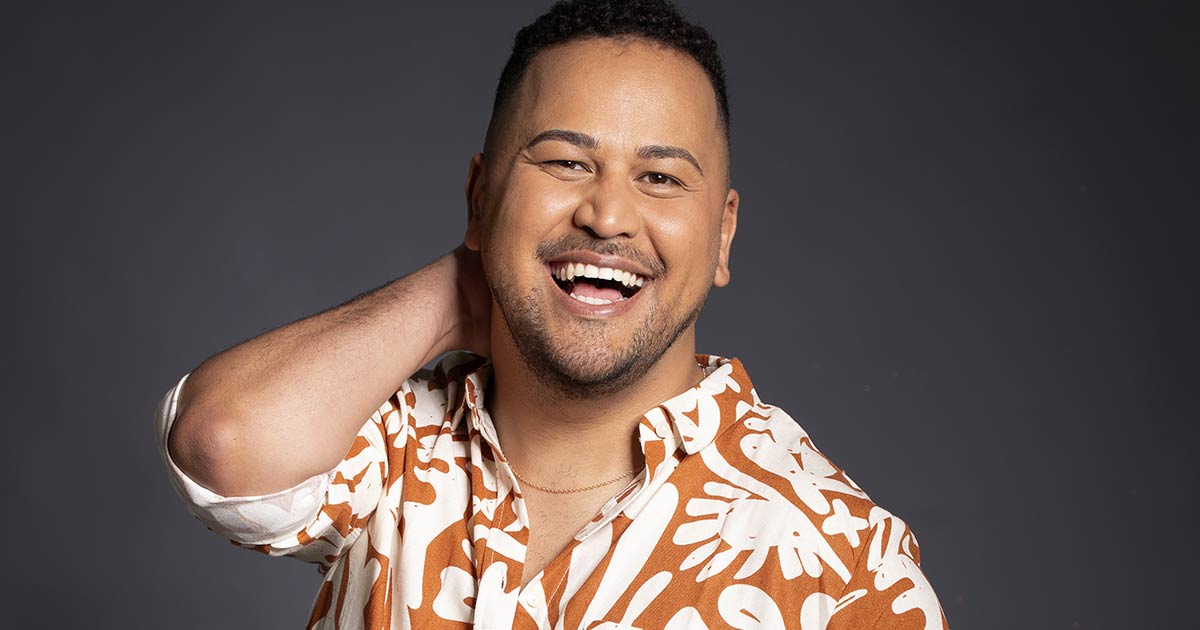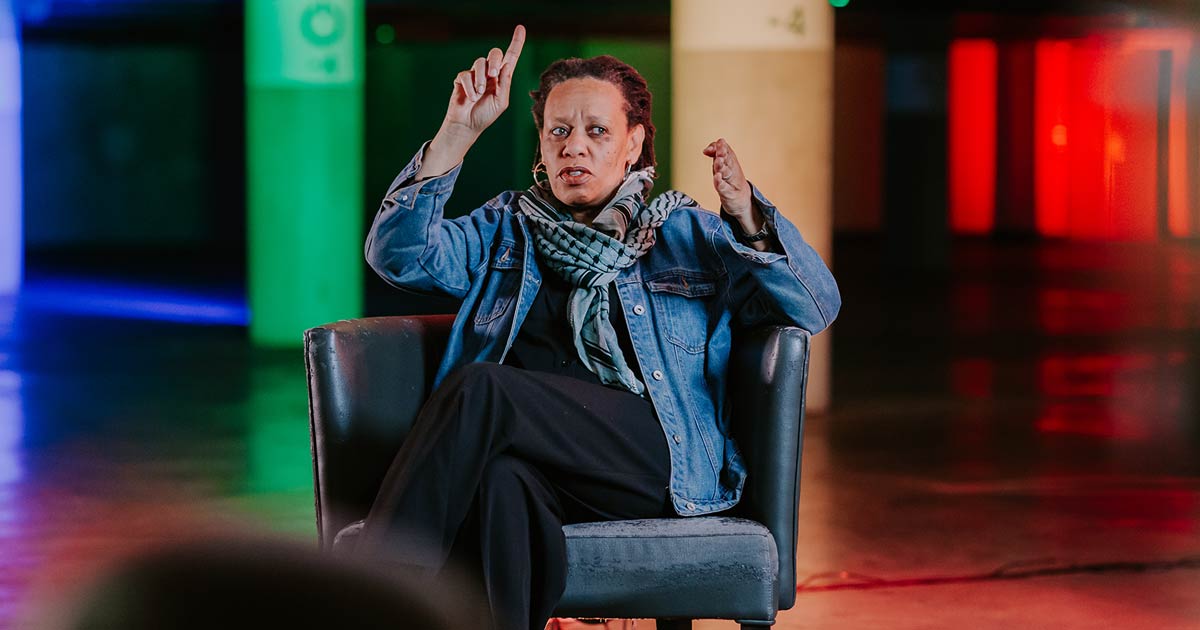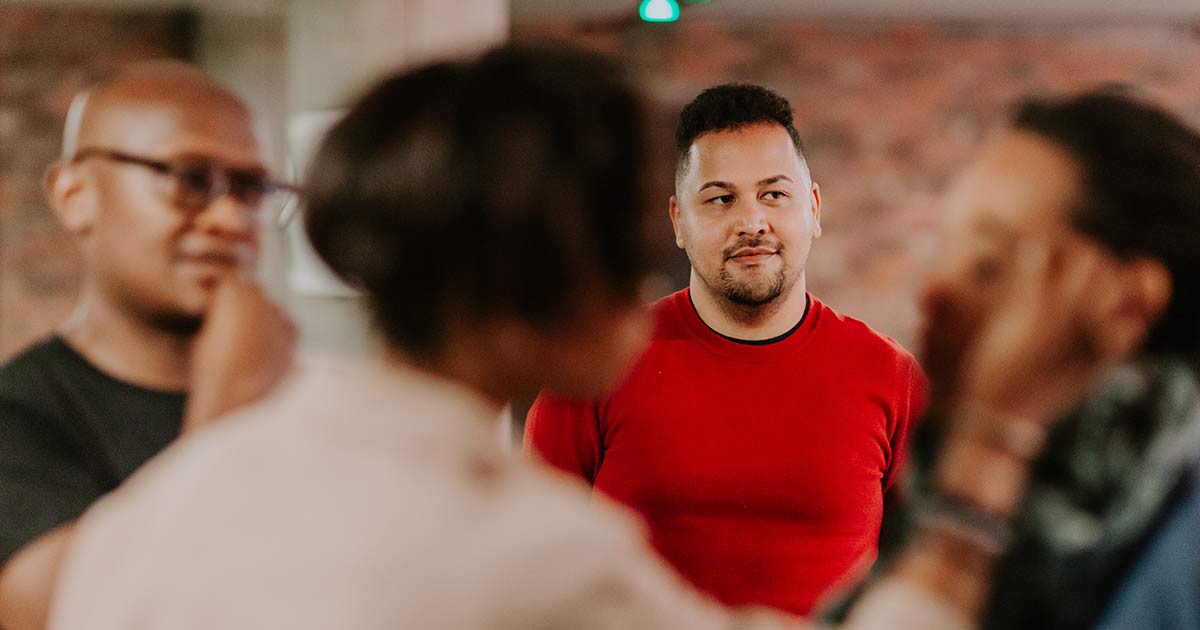Beyond Acceptance: Queer Filmmaker Renaldo Schwarp

The multi-talented Renaldo Schwarp continues to leave his mark on South Africa’s media and entertainment industry with his unapologetically queer storytelling, including his latest film, Young, Gifted & Queer.
Described as “a loud celebration of Black queer culture in South Africa,” this powerful documentary offers an unfiltered glimpse into the lives, artistry, and resilience of three influential Black queer icons: Andiswa Dlamini, founder of Other Village People and a groundbreaker in curating queer spaces; Umlilo, the genre-defying, intergalactic ‘kwaai diva’; and S’bo Gyre, an out-and-proud pop rapper redefining boundaries.
Their journeys are complemented by insightful commentary from trailblazers such as struggle icon Dr Bev Ditsie, media personality Lula Odiba, and celebrated DJs Ms Party and Lelowhatsgood, who add depth and perspective to the narrative. The film debuted on DStv’s Channel O during African Pride Month in October 2024 and is now embarking on a festival run, kicking off with the Joburg Film Festival in March.
We spoke with Schwarp about queer representation, his journey as a queer storyteller, and the vision behind his newest work.
Tell us about Renaldo Schwarp, the child – what kind of kid was he, and what led him into the film/TV/media world?
‘Klein Renaldo’ was definitely a people person. I was vibrant and expressive, always drawn to storytelling in some form. Whether it was debating, joining the drama club, or taking the opportunity to speak, I was constantly finding ways to be creative. Although I excelled academically, I felt a deep pull toward the arts and pursued a performing arts degree at Stellenbosch University. University opened my eyes to TV radio, and other visual storytelling mediums, and I realised that the common thread in everything I loved was storytelling and people. Over time, my passion for media evolved alongside my career. Today, I proudly call myself a storyteller, no matter the medium I work in. It’s a joy to do what I love every day.
What inspired you to create Young, Gifted & Queer, and was the journey to making this documentary a lengthy or challenging process?
The idea for Young, Gifted & Queer had been on my mind for about six months before it came to life. When the opportunity arose to create a project for Pride Month, I knew it was time to act on it. The process was intense and creatively such a learning curve. We shot the entire documentary in just two weeks and edited it in another two to broadcast at the end of Pride month. While the timeline was shorter than some of my previous film projects, the dedication of our team made it possible. From the talent and content team to the post-production crew, everyone poured their heart into the project. It truly felt like a labour of love.
The film weaves together the stories of Andiswa Dlamini, Umlilo, and S’bo Gyre. What led you to focus on these particular individuals, and what do their narratives bring to the larger story?
Casting was one of the most fascinating/difficult parts of the process for me. South Africa is rich with talented queer Black creatives, so narrowing it down was tough. After weeks of research, we landed on these three remarkable individuals, and when I met them, it just clicked. I saw the vision come to life.
What stood out with all three of them was their unapologetic joy and resilience. They each excel in their creative fields and represent multifaceted stories that showcase not only their artistry but also their humanity. They are a celebration of what it means to be young, gifted, and queer in South Africa today – so they really were the obvious choice.
Your debut documentary, SKEEF, explored queer Afrikaans identity, while this film delves into Black queer culture. How do you navigate and honour the diversity within South Africa’s LGBTQ+ community in your storytelling?
The keyword here is diversity. Our community is layered with so many unique backgrounds and experiences, and I believe it’s essential to reflect that in storytelling as it evolves. Each project I take on is an opportunity to amplify voices that might not always get the spotlight. While we explore broader LGBTQ+ themes, real human stories are always at the heart of my work. Whether it’s a queer Afrikaans person or a Black queer creative, or the work I do in the TV entertainment and lifestyle space my goal is to celebrate the richness and humanity of our community.

Young, Gifted & Queer includes the perspectives of iconic queer voices, such as struggle icon Dr Bev Ditsie
What impact do you hope Young, Gifted & Queer will have—both within the LGBTQ+ community and among broader audiences?
I’ve moved past the phase of asking for acceptance. For me and the people in the doccie, it’s now about celebration and unapologetically taking up space. This film is for the gays, by the gays! Within the LGBTQ+ community, I hope this documentary reminds people that queer joy is real and attainable. It’s about celebrating our brilliance, talent, and sense of community. For broader audiences, I hope it demonstrates that queer people are, above all, people. While this film is primarily for the LGBTQ+ community, I’d love for others to find it enlightening or inspiring.
What kind of feedback have you received on the documentary so far, and how has that response shaped your perspective on its message and relevance?
The feedback has been phenomenal! The night it aired, we trended on X (formerly Twitter) for more than 24 hours, and the media coverage and reviews have been overwhelmingly positive. While these seem like vanity feedback, it excites me most how deeply it resonated with the queer community. It proves there’s a hunger for more stories like this. Queer Black narratives are ready to take centre stage, and this validation drives me to keep amplifying these voices.
Do you think South Africa’s queer community does enough to celebrate and uplift queer talent and creatives? If not, what holds us back?
This is such an important conversation. In some ways, international audiences celebrate queer Black art more than we do locally, and that’s frustrating but not surprising. Whether it’s a lack of media representation or societal issues, it’s hard to pinpoint one reason. That said, I’m optimistic. We’re seeing more queer creatives gaining and creating their own platforms, and I think we’re moving in the right direction. It’s up to media, broadcasters, and audiences to push for greater visibility and support.
You wear many hats—author, filmmaker, strategist, and producer. Which role brings you the most fulfilment, and what excites you most about your work?
It’s hard to choose because the golden thread in all my work is storytelling. Whether I’m strategising, writing, or producing, I’m always telling stories that matter. Right now, filmmaking feels like this shiny new toy I get to explore. But honestly, each role fulfils me in different ways, and life would be far too boring if I had to pick just one.
How has your sexuality or identity influenced your work and career? Have there been moments where this intersection was particularly impactful or challenging?
Looking back, it’s impossible to separate my identity from my work. Intersectionality has been central to my career—from working in Afrikaans entertainment to my work in commercial media strategy and now filmmaking. While being gay and brown is an important part of who I am, it doesn’t define me or my work. I love telling stories that speak to my experience, but I’m just as passionate about exploring pop culture, travel, and theatre. My identity is always present, but it’s just one layer of the stories I tell.
Did you face a coming-out process as a professional in the TV and media industry, or have you always been able to express your authentic self?
Being naturally effeminate, my coming-out process wasn’t as dramatic as others. Behind closed doors, I’ve been told that my sexuality could be a barrier, especially in Afrikaans entertainment, but it hasn’t stopped me from accessing opportunities and creating them. Would it have been easier if I were straight? Probably. But that’s not the journey I’d have chosen. I’ve been privileged to work on mainstream platforms, and as I’ve grown older, I’ve become more unapologetically myself. Representation matters, and while I don’t consider myself an activist, I understand the impact of being visible and authentic.

Filmmaker Renaldo Schwarp on the set of Young, Gifted & Queer
Do you think queer creatives who are out and visible risk being “pigeonholed” or seen as less appealing to mainstream audiences? How can we challenge this?
Absolutely. South African audiences can still be conservative, and at times, at times it feels like there’s only space for one of us in certain rooms. This is changing, though, and I’m intentional about being part of that shift. The responsibility lies not just with visibility but also with decision-makers in boardrooms. Broadcasters must push for diversity—not just in creative roles but across all fields. We need to see queer doctors, lawyers, and athletes represented because we’ve always been here.
Dr Bev Ditsie’s statement in the documentary, “Let us live, my people. Unapologetically and with absolute joy,” is incredibly moving. How does this align with your vision as a filmmaker?
This sentiment embodies the core of the film: Black queer joy. It’s a powerful shift away from narratives of suffering and struggle. Living joyfully erases the harmful stereotypes of who we are and reclaims our narrative. And we get to write it and live it. The individuals in this film embody that joyfully, and it’s a privilege to share their stories.
The Joburg Film Festival is a significant platform for Young, Gifted & Queer. What does it mean for you to showcase your work at such a prestigious event?
I’m incredibly excited! The Joburg Film Festival kicks off our official festival run, and it’s a big moment. Watching the film on a big screen and sharing that queer joy with an audience is a dream. I hope this experience brings us closer to our humanity and helps us tell our stories on our own terms.
Looking ahead, what themes or stories are you most excited to explore next?
There will always be queer stories to tell, and I’m excited to be part of that journey. My first documentary was about acceptance, this one is about joy, and maybe the next one will focus on something completely different. Representation evolves, and I look forward to exploring stories that push the boundaries of how we see ourselves and each other.
Catch Young, Gifted & Queer by Renaldo Schwarp at the 7th edition of the Joburg Film Festival, set to take place from March 11 to 16, 2025 in Johannesburg, South Africa.
Leave a Reply